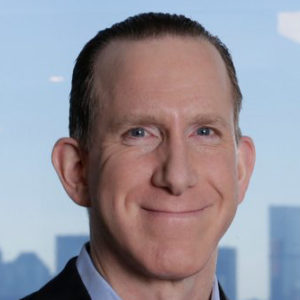Who Said We Can't Change?
Career Skills, Change Management, Decision Making, Expert Interview
Career Skills, Change Management, Decision Making, Expert Interview
What makes a high performer? Is it hard work and commitment, or a more strategic application of effort? For Marc Effron, it's all of the above, but the second approach is the deal breaker. The subtitle of his new book, "8 Steps to High Performance," says it all: "Focus on What You Can Change (Ignore the Rest)."
When I spoke to him for our Expert Interview podcast, I asked him to expand on that idea. He said it's all about the "flexible 50 percent."
"Half of what influences our performance at work we cannot do a darned thing about," he explained. "We call those things the 'fixed 50' – 'fixed' meaning you're not going to do a darned thing about them, so stop worrying about them. But that leaves 50 percent that you can control, and that's the 'flexible 50.’"

The fixed 50 percent is things like our level of intelligence, our core personality, our socioeconomic background and, to some extent, our appearance.
The flexible 50 percent is what we have "complete power over," Effron says – such as our goals, our level of fitness, the strength of our networks, and, perhaps most importantly, our behavior. These are the focus of his eight steps to high performance, and he backs them up with science-based research.
Step Two, Behave to Perform, digs into the difference between the natural behavior that reflects our personalities, and the behavior that we choose to display. Effron uses a vivid example to show how we can change one, but not the other.
"I compare this to our natural hair, when we wake up in the morning," he says. "It looks different right now than it did first thing in the morning, right? And we do [our hair] because, over the years, we've realized people don't want to see that natural hair. They want to see it slicked back or blown out or whatever we do."
"Use that same comparison of personality to behaviors: personality is your natural hair. It's always going to be there, it's always going to look that way. It's a gift, or a penalty, from your parents. You can't do a darned thing about. But you might also recognize, 'Hey, not every element of my core personality might be wonderful, and I'm going to slick some of that back or blow some of that out, so that it appears to other people to be more attractive.’"
"All of us have complete 100 percent control over our behaviors," Effron insists. "People saying things like, 'Oh, that's just who I am. I can't change' – completely untrue. You can change if you want to."
But even if you agree that you can change undesirable behavior, some of us need a bit of support in seeing that through. A coach can really help with this, Effron says. He or she doesn't need to be a professional performance coach. Anyone can give you coaching insight. You just need to ask.
"Most of us are going to have at least one, hopefully more, trusted friends at work. So go to that trusted friend with your goal for the year," he suggests. "You might say, 'Hey, Bobby, I tend to be someone who doesn't speak up a lot in team meetings. I don't really like calling attention to myself – it's kind of embarrassing – but I know I need to show up a little more boldly. I'm going to try doing that over the next month. Would you mind just listening and letting me know at the end of meetings if I’m actually showing up a bit more present in those meetings?’"
The feedback you get from such an appeal can be invaluable. For Effron, our goals are the starting point and the driver for high performance, so it’s not surprising that there’s a lot about setting and achieving goals in his book.
"The science around goal setting and its ability to motivate us is unbelievably powerful and conclusive," he says, adding, "the bigger goals we have, the more we will stretch to achieve those goals."
He offers a four-part process that helps us sift through our potential goals so that we focus our effort on the ones that will deliver the best results. The four parts are align, promise, increase, and frame, and in this clip from our Expert Interview podcast, he explains how that process works.
Listen to the full 30-minute interview in the Mind Tools Club.
What are your tips for achieving high performance? Join the discussion, below!

"I'd overcommitted myself – only to find I couldn’t possibly deliver on everything I’d promised. I had no choice but to communicate the issue in the best way I could."
"For some people, anxiety is a constant companion, even in situations where there’s no obvious reason for it. And it often goes hand in hand with a desire to achieve."
Have you ever tried to concentrate on a mentally taxing task when your belly is empty and sending you urgent signals to, "Please eat now!"? I know that happened a lot to me when I was young, and followed an endless series of diets. Food is one of our most basic needs – along with […]